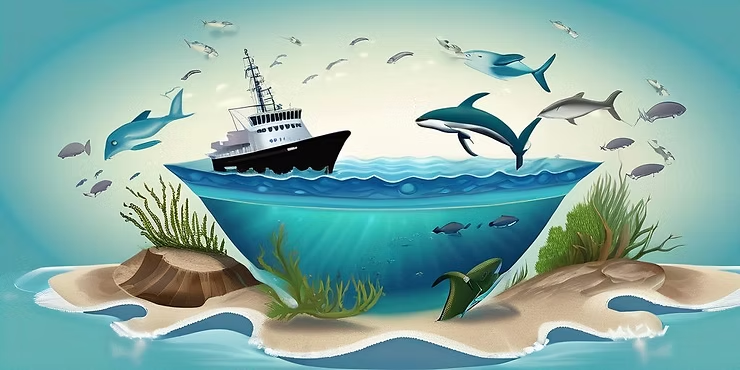Overview
Importance of Ocean Conservation
The oceans cover more than 70% of our planet and sustain an incredible diversity of life. They regulate global climate, provide oxygen, and support millions of livelihoods. Yet, overfishing, pollution, and climate change are threatening their survival. Immediate action is essential to safeguard these vital ecosystems for future generations.
Current State of the Oceans
Our oceans are under severe stress. Rising temperatures, ocean acidification, and overfishing are destroying coral reefs and disrupting marine ecosystems. Millions of tons of plastic waste enter the oceans each year, harming marine life and human health alike. Urgent solutions are needed to reverse this alarming decline.
Threats to Marine Ecosystems
Marine ecosystems face multiple pressures:
- Overfishing: Depletes fish stocks and disrupts natural balance.
- Plastic pollution: Entangles wildlife and poisons the food chain.
- Climate change: Causes rising sea temperatures, acidification, and coral bleaching.
Addressing these threats requires global cooperation and sustainable practices to restore ocean health.
Conservation Strategies
Marine Protected Areas
Marine Protected Areas (MPAs) safeguard biodiversity by restricting harmful activities such as mining and unsustainable fishing. They serve as safe havens for endangered species, restore damaged habitats, and strengthen the resilience of marine ecosystems. Expanding and properly managing MPAs is key to long-term ocean sustainability.
Sustainable Fishing Practices
Adopting sustainable fishing ensures fish populations remain healthy. Measures such as catch limits, seasonal closures, and responsible gear help preserve marine biodiversity. Supporting fisheries certification programs and community-led management provides economic security for coastal communities while protecting ecosystems.
Reducing Plastic Pollution
Plastic waste is one of the greatest threats to our oceans. Individuals can help by reducing single-use plastics, recycling, and supporting plastic-free initiatives. Governments and organizations must also enforce stricter regulations and promote sustainable alternatives to reduce global plastic pollution.
Individual Actions
Choosing Sustainable Seafood
Opting for sustainably caught or farmed seafood supports healthy oceans. Consumers can consult seafood guides or choose products with certifications such as the Marine Stewardship Council (MSC) label. Supporting restaurants and markets that prioritize sustainable sourcing also drives industry change.
Participating in Beach Cleanups
Beach cleanups prevent litter from reaching the ocean and harming marine life. These events raise awareness about pollution, foster community spirit, and inspire long-term behavioral change. Every piece of trash removed contributes to a cleaner, healthier coastline.
Supporting Ocean Conservation Organizations
Ocean conservation organizations conduct critical research, advocate for policy reforms, and lead restoration projects. Individuals can contribute by donating, volunteering, or raising awareness of their work. Supporting marine education initiatives also empowers future generations to protect ocean ecosystems.
Conclusion
The Power of Collective Efforts
From governments and organizations to individual citizens, collective action is the cornerstone of ocean conservation. Efforts such as expanding MPAs, reducing plastic pollution, and choosing sustainable seafood can restore ocean health and safeguard marine biodiversity.
Hope for the Future
Growing awareness and global action give hope that our oceans can recover. Conservation strategies are being implemented worldwide, and individuals are stepping up through everyday choices that support sustainability. Together, we can secure a healthier ocean for generations to come.
Continuing the Fight for Ocean Conservation
Protecting our oceans is a continuous responsibility. Policy changes, awareness campaigns, and sustainable practices are necessary to create lasting impact. By supporting organizations and committing to conservation, we can ensure thriving oceans and resilient marine ecosystems far into the future.

